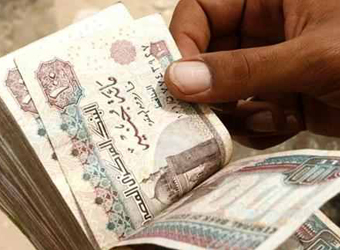Egypt’s overall balance of payments (BoP) registered a surplus of $1.9 billion in the first quarter of the current 2016/17 fiscal year, an improvement on the deficit of $3.7 billion in the same period the year before, the Central Bank of Egypt (CBE) said in a statement on Thursday.
The CBE has attributed the overall surplus to the performance of the capital and financial account, which saw a surge in net inflow to reach $7.1 billion, as opposed to $1.6 billion in the same period the previous year, the statement said.
The current account deficit dropped by 13.4 percent from July to September 2016 to record $8.7 billion from $10 billion in the same period last year, due to a rise in commodity exports and a slump in import payments.
Commodity exports jumped by 11.2 percent, from $4.7 billion to $5.3 billion, while commodity import payments dropped by 5.5 percent to $13.9 billion, according to the CBE.
The bank said that the service surplus narrowed by 50.2 percent in the aforementioned period, as Egypt’s tourism revenues slumped by 56.1 percent on the same period in the last fiscal year, generating $758.2 million.
During that period, revenue from the Suez Canal dropped 4.8 percent, from $1.4 billion to $1.3 billion. The drop comes down to a decline of 2.7 percent in the overall cargo shipped through the vital Egyptian waterway, as well as a drop of 0.4 percent in the Special Drawing Rights (SDR) value against the US dollar.
Egyptians’ overseas travel payments rose to $1.1 billion from $791.5 million due to a rise in visa-cards payments, the statement said.
Also, the net incoming transfers fell 21.3 percent from $4.32 billion to $3.39 billion, due to a decline in workers’ remittances, while net official transfers rose from $21.9 million in the same period last year to $33.8 million.
Foreign direct investment net inflows rose from $1.5 billion to $1.9 billion due to a rise in petroleum investment inflows.
The Thursday statement said that the CBE foreign liabilities saw a significant rise of inflow from $1.2 billion to $3.4 billion, attributed to an increase in deposits by Arab countries.
Source: Ahram Online


